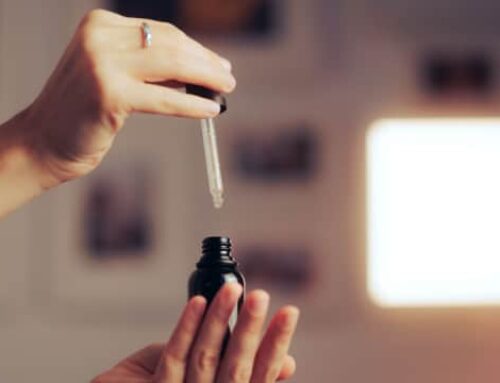Alcohol can cause a number of serious conditions in the body. While it’s well known that alcohol negatively affects the liver and brain, it’s not so well known how it affects the skin. Alcohol can increase the risk of several skin conditions and can also worsen pre-existing issues as well.
Let’s take a look at not only how alcohol can trigger and exacerbate certain skin conditions, but also how it can affect your skin appearance and aging.
How Does Alcohol Affect Your Skin’s Appearance?
Alcohol negatively affects the body in a variety of ways, and the skin is not immune from that. Alcohol can significantly affect the health of your skin, especially if you are drinking alcohol excessively or struggling with alcohol abuse.
Some of the ways alcohol affects the skin include:
Dehydration
Since alcohol is a diuretic, which means it causes the body to release more urine, it leads the body to lose more water and salt than usual. With less water in the body, it’s easier for your body to dehydrate. Dehydration can negatively affect your skin by causing it to dry out and become dull and rough.
Lack of hydration in the body and dehydrated skin can also decrease skin elasticity. Skin with less elasticity can become saggy and wrinkled, making you appear older than you are.
Drinking water between consuming alcoholic drinks can help you stay hydrated, but is not enough to overcome the detrimental effects in total.
Flushing
Flushing or turning red is also a common side effect of drinking alcohol. Alcohol’s metabolite acetaldehyde stimulates the release of histamines which can cause the blood vessels to dilate. When the blood vessels dilate, they can make your skin look flushed and red. Over time these capillaries become stretched out and the redness begins to persist.
Sleep Disruptions
Although drinking alcohol is often associated with causing someone to fall asleep faster, it can also cause you to wake up more often during the night. One or two nights of disrupted sleep are usually harmless, but according to the peer-reviewed journal Sleep Medicine, more than that can cause temporary changes to the skin, like dark circles under the eyes, pale skin, and a duller complexion. In fact, one study showed that the famed “beauty sleep” is real, noting that participants regularly found the photos of well-rested people more attractive compared to photos of them after only one night of poor sleep.
Aging
Though most people are probably familiar with the drying and sleep disruption effects of alcohol, more research is coming to light about the direct effects of alcohol on the aging of our cells and our DNA itself. Alcohol is now proven to shorten our telomeres, the “safety tips” on the ends of our DNA strands that keep them from unraveling and which keep our cells young and behaving properly. When our telomeres shorten, we age faster.
How Does Alcohol Affect Certain Skin Conditions?
Alcohol intake can increase the risk of certain chronic skin conditions and can also make some issues even worse. A few of the ways alcohol use can affect some skin issues include:
Increased Risk of Skin Infections
Bacterial and fungal infections are more likely to occur in people who drink alcohol excessively. This is because alcohol weakens the immune system and can decrease the body’s ability to absorb nutrients. People are also more likely to get injured while drinking excessively and injuries on top of a weak immune system can lead to skin infections.
Increased Risk of Skin Cancer
Because excess alcohol use weakens and suppresses the immune system, when you’re drinking and UV rays hit your skin, those harmful rays can actually cause more damage than they normally would. With more UV damage to the skin, you’re more at risk of developing skin cancer.
Additionally, when your body breaks down alcohol, it creates its metabolite called acetaldehyde. Acetaldehyde is a carcinogen and could be the reason for the increased risk of skin cancer that comes with excessive alcohol use.
Skin Changes Due to Alcoholic Liver Disease
Alcoholic liver disease occurs when someone drinks excessively over a long period of time. The liver will first develop hepatitis and then cirrhosis. But the liver isn’t the only thing affected by this disease. The skin is affected as well. The changes in the skin you may see with alcoholic liver disease include:
- jaundice or yellowing of the skin
- darker skin around the eyes
- visible blood vessels on the face, neck, and chest
- itchy skin
- Damage to circulation in the legs and feet causing hardening of the skin and skin ulcers
- Damage to nerves in the hands and feet causing numbness, tingling, and unfelt injuries
Rosacea
Alcohol not only increases the risk of certain skin conditions, but it also makes pre-existing skin conditions worse.
Rosacea is a chronic skin condition that causes flushing and irritation to the face. According to the American Academy of Dermatology Association, excess alcohol use can cause the development of rosacea and can exacerbate the condition and worsen the redness, making it more permanent over time. One version of rosacea is rhinophyma, the classic enlarged bumpy nose. Though this is associated with rosacea in general, it is famously assumed to be the nose of chronic alcohol drinkers. This has led to some incorrect assumptions in people who have rosacea but are not drinkers.
Psoriasis
High alcohol use has also been shown to increase the risk and intensity of psoriasis, an autoimmune inflammatory skin condition. Additionally, people who already have psoriasis and drink heavily can develop treatment-resistant psoriasis.
Even if your psoriasis isn’t treatment-resistant, the available treatment options can be limited because liver disease is often a contraindication with some psoriasis medications. This means it’s not recommended for those with liver disease to use the medication.
Seborrheic Dermatitis
Seborrheic dermatitis is a common skin condition associated with inflamed, greasy, flaky patches on the skin. It is often found in those who drink excessively. Why? It’s thought that nutritional deficiency is the issue. When people drink heavily, they are often replacing food with alcohol. This can lead to a vitamin deficiency. Seborrheic dermatitis is often associated with low zinc and vitamin B6 levels, according to the National Institutes of Health.
Porphyria Cutanea Tarda
Alcohol consumption is the most common cause of porphyria cutanea tarda (PCT) as it’s often associated with chronic liver disease. This condition causes painful, blistering lesions on the skin following exposure to the sun.
Schedule A Consultation
Whether you’re struggling with skin conditions due to alcohol use or not, an effective skincare regimen can help address your concerns and have you looking healthy, radiant, and more youthful.
At Art of Dermatology at the Laser & Skin Center of New York, Dr. Krant will listen to your concerns, examine your skin, and build a skincare routine based on your specific needs.
To schedule a consultation today, call our New York City office at 212-488-5599 or use our online contact form.
Jessica Krant, M.D., MPH, is a board-certified dermatologist with specialized experience in cosmetic, laser, surgical, and medical dermatology, but above all, Dr. Krant is most proud to be a caring, comprehensive physician who takes the time to listen and send her patients home with a smile.















Leave A Comment